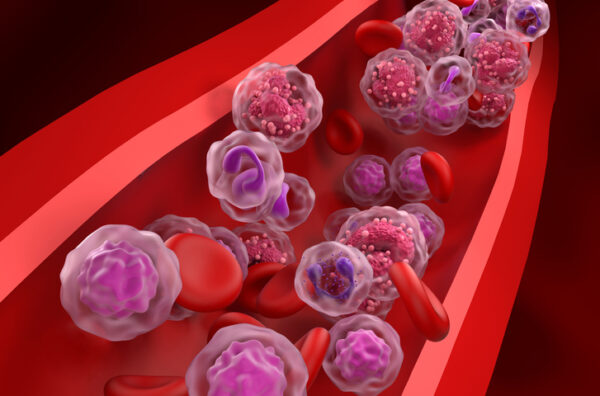
Stem cell transplants that are a standard treatment for certain blood cancers are out of reach for many patients. The procedure requires cells from a matched donor, but a match isn’t always available. A new cell therapy derived from umbilical cord blood now has European Commission approval, a regulatory decision that provides eligible patients with another option and gives the therapy’s developer, startup ExCellThera, its first commercial product.
The Wednesday regulatory decision covers the treatment of adults with hematological malignancies, including leukemias and myelodysplastic syndromes, that require an allogeneic hematopoietic stem cell transplant. To be eligible for this therapy, suitable donor cells must not be available to patients. The new product of Montreal-based ExCellThera, known in development as UM171 cell therapy, will be commercialized under the brand name Zemcelpro.
Suitable donors for stem cell transplants can be unavailable for various reasons. Besides the inability to find a suitable match, the age and health of the donor are also considerations. In other cases, a patient may already have antibodies that would reject donor cells. Cord blood has cells that are less likely to be rejected, but this source also has few cells. ExCellThera’s technology works with a small volume of stem cells, multiplying them in cell culture to provide the allogeneic stem cells required for blood cancer patients who lack a suitable donor. The technology is based on research from the University of Montreal; ExCellThera spun out of the university in 2015.

As Healthcare and Biopharma Companies Embrace AI, Insurance Underwriters See Risks and Opportunities
In an interview, Munich Re Specialty Senior Vice President Jim Craig talked about the risk that accompanies innovation and the important role that insurers play.
ExCellThera advanced Zemcelpro to a Phase 2 clinical trial conducted in the U.S., Canada, and Europe. The study enrolled patients with high or very high-risk acute leukemias and myelodysplasias, patients who have had a transplant procedure and require another one, and those who have refractory or active disease. Results showed an overall survival rate of 67% and a progression-free survival rate of 63%. The relapse rate was low at 19%; 7% of participants developed moderate-to-severe chronic graft-versus-host disease. These data were presented during the 2023 annual meeting of the American Society of Hematology.
The European Commission decision for Zemcelpro is a conditional marketing authorization based on the Phase 2 data. This pathway reserved for therapies addressing unmet medical needs and serious diseases with no available treatments. Conditional authorizations can be renewed annually, but a company must continue to provide data supporting therapeutic benefit. ExCellThera said a Phase 3 clinical trial is planned. In ExCellThera’s approval announcement, Dr. Jurjen Versluis, internist-hematologist at Erasmus MC in Rotterdam, The Netherlands, and principal investigator in the Zemcelpro’s clinical trials, said the lack of suitable donor-derived blood stem cells leaves many patients without access to a potentially life-saving treatment.
“Zemcelpro is an innovative, one-time cell therapy with curative intent, developed to give blood cancer patients without access to suitable donor cells the transplant they urgently need,” Versluis said. “By enabling more patients to receive a life-saving transplant, Zemcelpro has the potential not only to save lives but also to reduce the healthcare and societal burden associated with these devastating conditions.”
The regulatory decision permits marketing of Zemcelpro in all European Union member states as well as Iceland, Norway, and Liechtenstein. ExCellThera said availability of Zemcelpro will depend on several factors, including completing reimbursement procedures in each country covered by the authorization. Cordex Biologics, an ExCellThera subsidiary, is seeking strategic partnerships to accelerate commercialization of Zemcelpro in Europe and other markets.
ExCellThera said it has been speaking with the FDA about a potential regulatory filing for Zemcelpro. The company has also filed an amendment for an investigational new drug application to proceed to a Phase 3 test of the cell therapy in patients with high- and very high-risk leukemias and myelodysplasias.
U.S. blood cancer patients already have a cell therapy option. In 2023, the FDA approved Omisirge, a cord blood-derived cell therapy developed by Gamida Cell. The company, which had shaky finances prior to Omisirge’s approval, sought strategic partnerships or other transactions to support commercialization of its new product but failed to land any deals. Last year, Gamida Cell’s largest lender acquired the biotech, taking it private. Omisirge, Gamida Cell’s only commercialized product, is not approved in Europe.
Illustration: Getty Images








